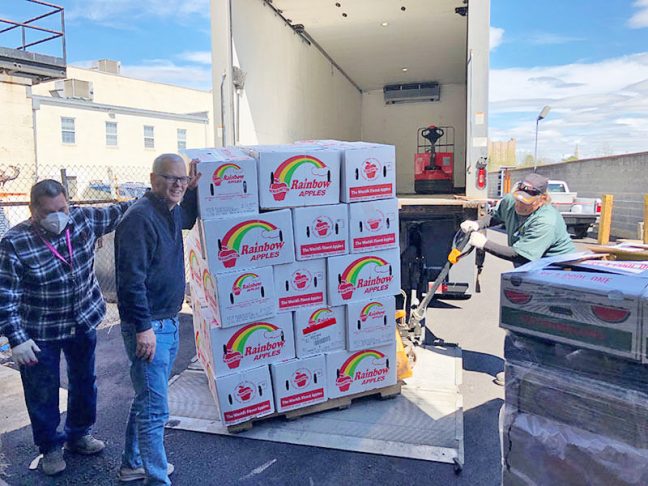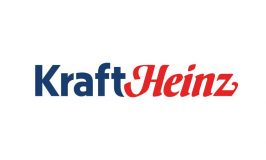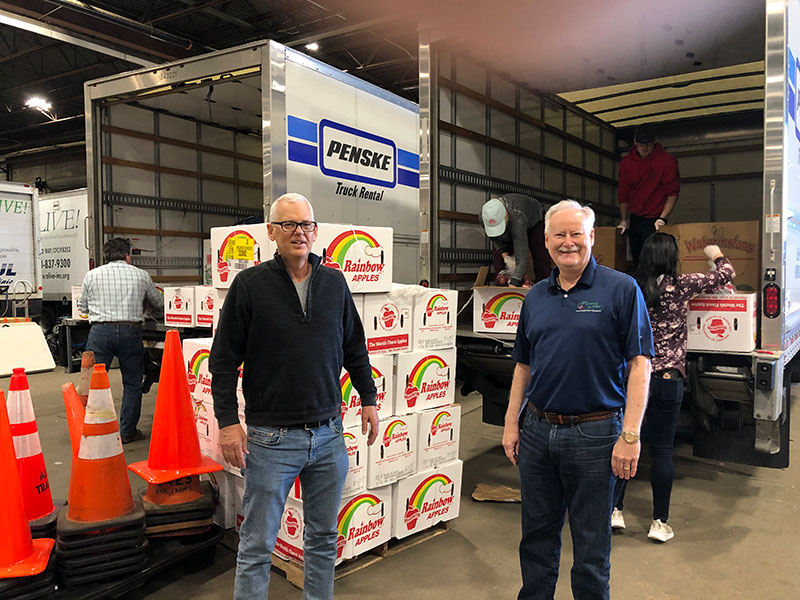Businesses across the nation continue to face the challenges brought by the Covid-19 pandemic. United Fresh’s foundation has started a donation program to help kids and families; the national trucking industry is asking for help and Kraft Heinz, in a business update, has announced the postponement of its Investor Day event.
United Fresh Start Foundation starts Covid-19 donation program to help kids, families
In response to the Covid-19 pandemic, the United Fresh Start Foundation is offering a new grant program— Covid-19 Rapid Response Fresh Grants—to increase access to fresh fruits and vegetables for children and families in need, while also creating opportunities for foodservice distributors who face the loss of markets due to the restaurant and hospitality industry shutdown. “These are two pressing needs facing our country today that are interconnected,” said United Fresh Start Foundation Chair Lisa McNeece, VP of foodservice and industrial sales for Grimmway Enterprises Inc. “Kids are out of school and families are out of work. We need to make sure they have access to fresh produce through remote feeding sites or community programs. And at the same time, our foodservice distributors have been devasted by the immediate shutdown of their markets. This is an attempt to inspire our greater industry to recognize both needs and do what we can to help.”
The United Fresh Start Foundation will fund (25) $1,000 grants to produce companies and foodservice distributors who can provide fresh fruits and vegetables to schools, community groups and other emergency feeding sites for those in need. If a distributor can donate at least $1,000 worth of produce, or more, the Foundation will reimburse them $1,000. The goal is to break down the barriers that impact access to fresh produce and bring community members and the supply chain together during this extraordinary time.
The first grant was used to support a donation of 1,000 3-pound bags of apples by Lancaster Foods to the ALIVE community feeding program in Alexandria, Virginia, on Saturday, April 4. Lancaster Foods President John Gates joined United Fresh President and CEO Tom Stenzel in delivering the fresh produce to ALIVE for distribution to needy residents in the community.
“I thank John and the Lancaster team for going above and beyond to help our community,” Stenzel said. “And, for me personally, this feeds my own neighbors in need.”
This program is funded by those individuals who have agreed to donate their prepaid registration fees for the United Fresh 2020 Convention in San Diego to the United Fresh Start Foundation.
“I want to thank each of those individuals for inspiring us with their generosity and making this program possible,” McNeece said. “In addition, we encourage individuals to consider making a tax-deductible donation directly to the United Fresh Start Foundation so we can continue to serve kids everywhere as best we can. And, of course, company contributions are welcome! Make your donation here to ensure kids are growing up fresh!”
Interested produce distributors should complete this simple form to request a grant from the United Fresh Start Foundation. United Fresh asks that produce distributors immediately implement community feeding programs and it will get back to them on a first-come, first-served basis as long as funds are available.
National supply chain threatened by lack of new truck drivers
In response to Covid-19, as of April 7, 27 states have closed their state driver licensing agencies (SDLA), while the remaining 23 states operate on a limited basis. With the trucking industry accountable for moving 71 percent of all freight across the country, the supply chain relies upon new commercial drivers.
According to Don Lefeve, president of the Commercial Vehicle Training Association (CVTA)—the nation’s largest association of commercial truck driving schools—the closure of these agencies leaves many future drivers unable to obtain commercial learner’s permits (CLPs) and commercial driver’s licenses (CDLs). Abruptly halting the process of getting 25,000-40,000 new truck drivers trained, licensed and on the road impacts a number of significant industries and the nation’s supply chain.
In efforts to raise legislative awareness, CVTA led a coalition of Fortune 500 corporations, major associations and commercial driving schools in sending letters to state governors and congressional leaders highlighting the growing problem of SDLA closures and the impact this has on the supply chain as a whole.
The U.S. Department of Homeland Security-issued guidance officially deems transportation workers to be a critical workforce—including “employees supporting or enabling transportation functions, including truck drivers, bus drivers…,” Department of Motor Vehicle (DMV) employees…” and those involved in “credentialing, vetting and licensing operations” for this industry. While this seems like it should have provided clarification that agencies responsible for the issuance of CLPs and CDLs would be considered a part of this, states appear to have conflicting opinions when it comes to considering these national guidelines. With over half of the country’s SDLAs closed and potentially more to come, Lefeve said it is crucial for governors to understand that these decisions don’t just impact an individual state, but the entirety of the nation.
“Commercial driver training schools are working together with participants across the supply chain to facilitate Americans’ access to needed goods and services, including food and critical supplies (like prescription medications) during this pandemic,” Lefeve said. “To avoid truck driver shortages, which are critical to our nation’s response and recovery, it is imperative that state and federal governments work together so CDL schools and SDLAs can remain open to train, test and license new commercial drivers.”
The coalition is proposing that governors need to enact executive orders to recognize CDL training schools and SDLAs as “essential services” while also granting the Secretary of Transportation temporary authority to also administer CLP or CDL testing due to SDLA closure. Timely action on these two requests will help avoid an even larger shortage of critically needed commercial truck drivers during the Covid-19 pandemic.
“It’s imperative that individual states recognize the national impact of their decisions to shut down CDL training schools and SDLAs. We need them to specifically recognize that CDL training schools and SDLAs are essential services,” Lefeve said. “Equally important is appealing to Congress to give the Secretary of Transportation the temporary authority to create a pathway for the supply chain to continue. This starts with commercial driver training and licensing.”
CVTA members represent over 225 schools in 43 states and collectively train nearly 60,000 commercial drivers annually. CVTA’s primary mission is to advance and support the commercial driver training industry through advocacy, education programs and certification programs to help members produce the safest drivers possible.
Kraft Heinz Co. provides business update relating to Covid-19 outbreak
As communities around the world struggle to cope with the real-life implications of the Covid-19 outbreak, the Kraft Heinz Co. is providing an update on its response to the pandemic, the rescheduling of its upcoming Investor Day and business impacts to date, ahead of its first quarter 2020 earnings call later this month.
“Right now, our mission as a company has never been clearer: We have a huge responsibility to keep feeding the world,” said CEO Miguel Patricio. “Each leader on our team is focused on making the company and our global business as flexible and agile as possible to meet demand forecasts that are changing daily—and sometimes, hour by hour. We are inspired by our employees on the front lines—in our manufacturing plants and distribution centers, which all remain operational, and our in-store sales teams—who are working tirelessly each day to meet the demand and make sure consumers have the food and nourishment they need during these uncertain times.”
As announced on March 20, Kraft Heinz is donating $12 million globally to ensure people across the world have the food they need during this challenging time. As part of this commitment, the company is making a donation valued at $6.6 million to Feeding America, the largest domestic hunger relief organization in the United States, to help support food banks located near Kraft Heinz offices and plants. The Feeding America donation consists of $1.9 million in cash and $4.7 million in products like Kraft Macaroni & Cheese.
As the Covid-19 situation evolves, Kraft Heinz leadership will continue to evaluate and adapt as needed to ensure the health and safety of its employees and support for our consumers.
Rescheduling Investor Day
The company is postponing its in-person Investor Day planned for early May to support safe, social-distancing initiatives and will reschedule it at an appropriate time and place—ideally in the second half of 2020 once travel and meeting restrictions are lifted.
At this event, senior leaders from the company plan to share their long-term vision and priorities for the business in-person with analysts, investors and media, and unveil in more detail the new strategic plan and go-to market structure for the business that is currently being put into place.
“We have been developing a powerful new strategy, transforming our capabilities and making needed investments in the business for months,” Patricio said. “Our strong execution in the face of this crisis reflects the exceptional progress our people have been making. We have also been looking forward to sharing our new vision and long-term growth framework in-person with investors and all our external stakeholders. But given the current, unprecedented Covid-19 challenge, we believe it is better for Kraft Heinz, our shareholders and our customers that we continue our single-minded focus on getting our products from our plants to stores and onto consumers’ tables.”
Business impact and Q1 2020 earnings
The company’s growth has accelerated in the wake of very strong consumer demand for its products and brands, despite significant declines in foodservice-related sales around the world. Net sales are now expected to increase approximately 3 percent and Organic Net Sales are expected to increase approximately 6 percent. The difference between expected net sales and Organic Net Sales is primarily attributable to prior year divestitures and currency impacts. This compares to previous expectations for a low single-digit rate of decline in Organic Net Sales versus the prior year.
At the same time, the company does not expect the full benefit from incremental sales in the quarter to flow through to net income/(loss) from continuing operations, Adjusted EBITDA, or earnings per share due to added expenses to meet this accelerated growth in addition to headwinds previously disclosed on its February earnings call.
The company expects to release its first quarter 2020 financial results on Thursday, April 30, before the market opens.
Kraft Heinz management will host a conference call at 8:30 a.m. Eastern Daylight Time that day to review and discuss its results, offer a brief preview of the topics that will be unveiled during its Investor Day and conduct a question-and-answer session with analysts.

